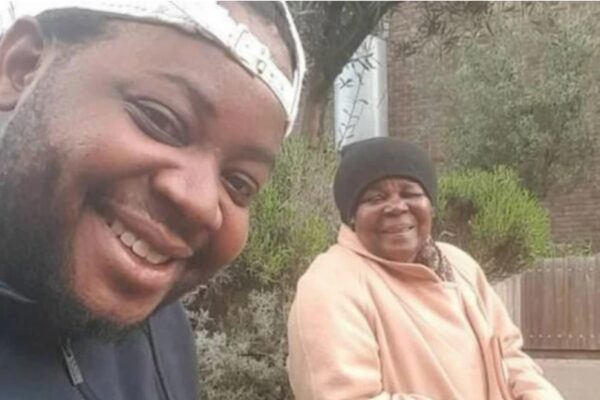Man Denied Access to a British Airways Flight Dies After Missing Vital Blood Transfusion He Was Flying Home to Receive, Airline Stands By Decision
A Black British man, in desperate need of monthly blood transfusion, was turned away from an airport in Jamaica because airline officials rejected his passport, and died days later. The staffers determined his identification was invalid because parts of it were damaged.
According to Metro News UK, British Airways in the Montego Bay airport denied Chaz Carl Powell access to his March 9 flight, claiming his passport was in too poor of shape to validate for international travel.
Family photo
The 41-year-old needed to return to England, after spending time with his girlfriend on the island, to undergo his regular blood transfusion at King’s College Hospital to treat his sickle cell anemia.
Johns Hopkins Medicine states sickle cell anemia is an inherited disorder prompted by a genetic defect that causes one’s red blood cells to develop in a shape similar to a sickle.
The Camberwell native sought emergency travel documents at the British Consulate, taking a new passport photo. In the new picture, Powell’s are noticeably yellow. One visible symptom of the disease is severe jaundice, a yellowing of the skin or whites of the eyes.
Family photo
While waiting for his identification approval, the man complained to his girlfriend Monique Allen, 30, about “stomach aches” and “struggling to eat.” She took him to the Spanish Town hospital and three days after being rejected from his flight, he died.
Reports say the doctors worked to no avail to resuscitate him and the police categorized his demise as “sudden death.”
However, My London (who spoke exclusively to his mother) suggested the man died of “apparent organ failure after his health spiraled out of control.”
The family is waiting for a post-mortem.
The airline issued its condolences via a corporate statement, also explaining its policy on assessing travel identification.
“We’re saddened to hear that one of our customers has passed away and our thoughts are with his friends and family at this difficult time,” a release from British Airways read. “Airlines are required by law to ensure that all documents presented for travel are valid.”
It concluded, “While our airport team did what they could to help Mr. Powell, unfortunately, the photo page of his passport was so badly damaged it could no longer be regarded as a valid travel document.”
The deceased’s mother Sandra Powell, 60, believes her son’s illness was exacerbated by the stress of getting the approval for his ID, the key to him returning to his country to receive the necessary transfusion. She shared how “completely shocked” she was because her “helpful and caring son” traveled to Jamaica on a “regular basis” and had never had problems.
Powell also took precautions if health problems arose while he was abroad. She states he secured emergency funding for a transfusion if it was ever needed, adding he even scheduled a plan for his return procedure, “He had an arrangement for his nurse at Kings, as soon as he landed he would ring her for an appointment and come in to get his transfusion.”
In speaking about his character, she said he would chauffeur her so much, “people thought he was my partner.” Despite his own sickness, she said he helped with his ailing grandmother.
“My mum has dementia, but when she sees all the flowers she keeps breaking down,” she shares. “I have to hide some of the cards so she will not read them.”
Sandra, a Southwark Council officer, said her son’s passport was only “slightly damaged” and asserts the staffers might not have recognized him because the passport photo was dated. Since taking the picture for his passport, Powell has gotten heavier and had “grown dreadlocks”
Even still, Sandra maintains the airline was wrong to deny him travel, saying, “They had no right to take control of my son’s life.”
Outside of his passport, Powell did have additional identification with him, and the photograph used on his U.K. driving license matched the rejected official travel booklet.

